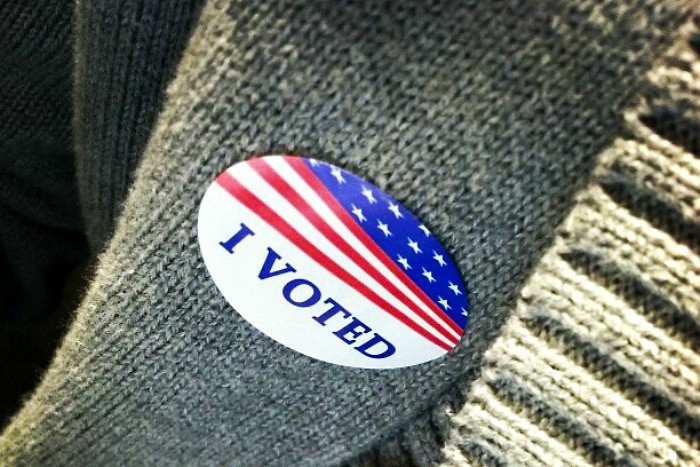The City of Grand Rapids will be holding Primary Elections on August 4 and City General Elections on November 3. With the Primaries drawing closer, questions like photo ID requirements, employee rights to leave work and whether or not your child can come along with you to the polls can end up confusing and discouraging registered voters from hitting the polls. Since these rights and responsibilities often vary from state to state, we've laid out some basic information to help local voters prepare to make their voice count on both election dates.
Photo Identification
Perhaps the most talked-about regulation that many citizens are concerned about is the question of photo identification. In Michigan, a photo ID OR a signed affidavit, provided at the polling station, is required for registered voters to be able to sign in and vote. This means that for those who don't have or forgot their identification, they are still able to vote if they are willing to sign an affidavit attesting to not having a photo ID with them. What isn't allowed is for someone to have a photo ID but refuse to show it to poll workers, even as a registered voter. Of course, to vote one must be registered ahead of time. But at the polling station, proof or sworn testament to identity is required to vote. Those unwilling to show ID or sign an affidavit will not be permitted to vote; those unable to show an ID are able to sign an affidavit and vote, as long as they are registered in the precinct in which they reside.
Acceptable photo IDs include a Michigan driver’s license or state ID card, a current driver’s license or state ID from another state, a United States passport, a military ID card with photo, federal or state government-issued photo ID, a student ID card from a high school or accredited institution of higher learning or a tribal ID card with photo.
Polling Rights
At the polls, citizens have a number of rights including being able to vote in private without interference or intimidation, to look over a sample ballot before voting, to review state and federal laws concerning voting, to ask for help from election workers about anything that confuses them and to get a replacement ballot if a mistake is made while voting.
Children under 18 are allowed to accompany their parents to the voting station while they vote.
If a citizen’s name is not on the polling list, a provisional ballot can be voted on. One must assert, under oath, that they registered in time to vote, and are a legal resident of the city or township in which the vote is being cast.
Twenty-nine states have specific laws spelling out the rights of employees to be able to leave work to go vote. Michigan does not currently have any laws on the books about employee voting rights.
So what happens if rights or responsibilities are not protected during elections? Illegal or fraudulent activity can be reported to the local clerk or the Michigan Department of State’s Bureau of Elections.
The Rapidian, a program of the 501(c)3 nonprofit Community Media Center, relies on the community’s support to help cover the cost of training reporters and publishing content.
We need your help.
If each of our readers and content creators who values this community platform help support its creation and maintenance, The Rapidian can continue to educate and facilitate a conversation around issues for years to come.
Please support The Rapidian and make a contribution today.

